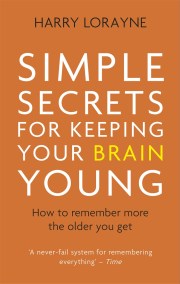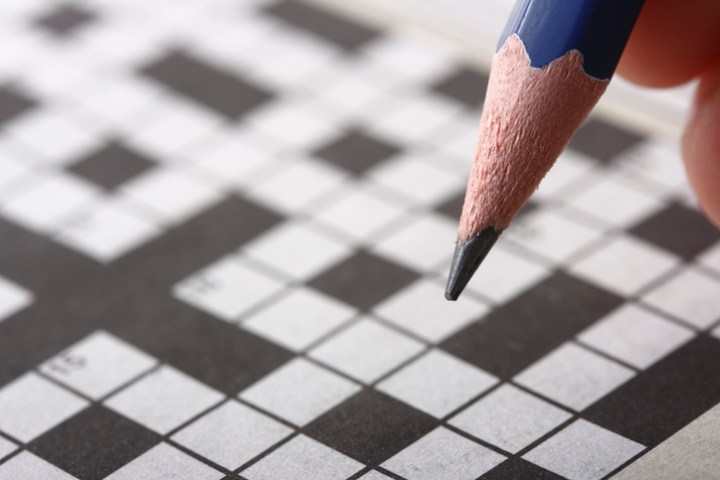How to Improve your Memory

Do you sometimes run to your fridge, swing open the door, then stare into it wondering what in the world you’re there for? Do you hide treasured items in special places, then forget where they are? Don’t just put it down to a ‘senior moment’ – you can do something about it!
There are lots of things you can do but one is to eliminate absentmindedness simply by being present-minded. Think of the action you’re doing, or are about to do, at that moment; really think about those mundane actions at the moment you execute them. I call my ‘device’ for achieving present-mindedness ‘Original Awareness’. You need to be aware of an action as it’s taking place, not after it has taken place; it’s too late then. So I’ll give you a ‘device’ for trapping those fleeting thoughts. It’s based on what I call the Reminder Principle.
There’s a phenomenon where songs, smells, and so forth remind us of people, places, ideas and things. In fact, I doubt that a day goes by without your seeing, hearing, or thinking something that makes you snap your fingers (actually or figuratively) and say ‘that reminds me!’ What you have seen or heard may have no conscious connection to the thing it reminds you of – but there must be some sort of subconscious connection or one wouldn’t have reminded you of the other. And whenever that connection exists, one thing will remind you of the other.
Now, hear this (I dislike the phrase ‘listen up’): You can make that kind of a connection consciously, knowingly. You can choose what you want to be reminded of, and you can choose the ‘reminder’ itself. Then, not only will that reminder help you figure out where in the world you put your keys or pencil, it will start you along that fascinating road toward having a dependable, reliable, trained memory! And, just as important (if not more so), as you’re having fun and amazing yourself with your newfound ability, you are giving your mind the very best possible exercise, building new brain cells. I’ll prove it to you.
Let me ease you into it: I’m writing at my desk. I’m interrupted – the telephone rings, someone calls me with an emergency, or maybe I just need to get a drink of water, and then – ‘Where the hell is my pencil?’ I want to use that same pencil. It takes me fifteen minutes or longer to discover it tucked behind my right ear. Aggravating, annoying, a waste of time. Answering the phone, handling the emergency, getting a drink, those things might only take a couple of minutes, but searching for the pencil can take many times that!
Do I have a solution for that particular problem? You bet I do. And that solution brings us to the Reminder Principle, which is what started all of this memory stuff for me.
Here’s an example of the simple idea that will beam you up and away from absentmindedness to a state of present-mindedness. Every time I’m interrupted and I slide my pencil behind my ear, instead of just doing it without thinking, I force myself to see a mental image. I actually see the pencil going not behind my ear (that would be too mundane and habitual) but into my ear, point first. I can almost feel the pain. I have forced my mind to be ‘originally aware’, to be present at that instant. I have trapped a fleeting thought! So later, when I need my pencil, I remember exactly where it is.
Now, because this is the basis of my memory system, because it’s so important, I need to take another moment or two to explain it. I need to make you understand that this simple process takes the minutest fraction of the time that it took me to write about it. It’s done without breaking mental or physical stride. It’s an instant mental calisthenic or exercise.
In that split second, when I formed the mental picture of the pencil in my ear, I brought the Reminder Principle into play, the principle that’s always been there, lying dormant. In that split second, I accomplished so much. I forced myself to think of an action that I ordinarily would not think of. I grasped my mind by the scruff of the neck and said: ‘Darn it, pay attention.’ I forced myself to think of the action at that moment.
The ‘emergency’ is over and I need my pencil again – so I automatically think pencil, no choice. And – ‘OH, THAT REMINDS ME!’ – I can almost feel that pain as my hand automatically moves to my right ear. There’s the pencil. No time wasted, no aggravation. Onward.
Have I explained this properly? Reread, please, if you’re not sure you understand. This basic idea is the foundation of a system that will enable you to build innumerable ‘memory steps’ for yourself. This principle and its extensions will enable you to remember just about anything – and I don’t use the word ‘anything’ lightly. I mean numbers of any kind, from telephone numbers to your Social Security number to your credit card numbers; names and faces; foreign language vocabulary; appointments; errands; thoughts of a speech; reading material – facts of all kinds. Have I whetted your appetite and curiosity? Good. Come along with me. This may be a turning point for you, no matter what your age.
If you want to find out more ways to keep your brain young, read Harry Lorayne’s brilliant book.
Completely practical and easy to use, the book advises in 24 chapters on how to recall names and faces; remember appointments; find keys, glasses, valuables; give speeches without notes; learn foreign words and phrases; memorise lists of items, quotations, facts and figures; and regain (or maintain!) the confidence that comes with having a sharp, active mind.




